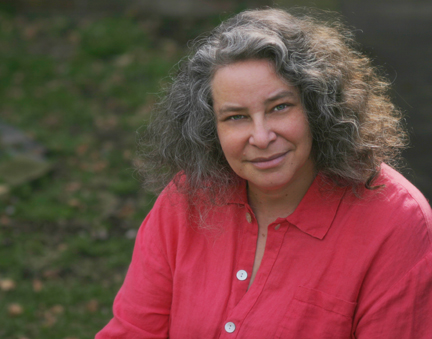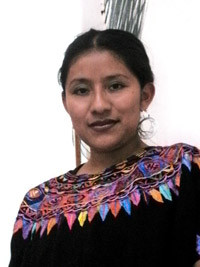Split This Rock Poetry Festival:
Poems of Provocation & Witness 2016
CALL FOR SESSION PROPOSALS:
Workshops, Themed Readings, and Panel or Roundtable Discussions
DEADLINE: June 30, 2015
Submit online:
CONTACT US AT INFO@SPLITTHISROCK.ORG IF THE FORM IS NOT ACCESSIBLE TO YOU.
Split This Rock invites proposals for workshops, panel and roundtable discussions, and themed group readings for the fifth Split This Rock Poetry Festival, scheduled for April 14-17, 2016, in Washington, DC.
More and more, we understand the ways that issue areas converge: earth justice requires economic and racial justice; LGBT rights and gender equality intertwine; freedom is indivisible. We're particularly interested this year in seeing proposals that address these intersections, examining the ways that poetry can help us understand the connections and build the alliances necessary to imagine and construct another world.
The festival prides itself on being a place for community building. Interactive proposals that open unique opportunities for participants to connect with one another are of particular interest. When proposing panel discussions and readings, we request that time be set aside for dialogue or a period of questions and answers.
Split This Rock is not an academic conference, but a gathering of individuals from many backgrounds. Please, no academic papers and avoid jargon of all kinds. Thank you!
We invite you to visit the website www.splitthisrock.org to review the schedules of the first four festivals to get a sense of the broad range of topics and approaches that appeal to organizers.
*PROPOSAL GUIDELINES*
Split This Rock Poetry Festival: Poems of Provocation & Witness
April 14-17, 2016, Washington, DC
Split This Rock cultivates, teaches, and celebrates poetry that bears witness to injustice and provokes social change. Building the audience for poetry of provocation and witness from our home in the nation's capital, we call poets to a greater role in public life, foster a national network of socially engaged poets, and celebrate poetic diversity and the transformative power of the imagination.
Split This Rock Poetry Festival invites poets, writers, and activists to Washington, DC, for four days of poetry, community building, and creative transformation. The festival will feature readings, workshops, panel discussions, youth programming, activism - opportunities to imagine a way forward, hone our activist skills, and explore the many ways that poetry can act as an agent for social change. Learn more about Split This Rock and the festival at the website.
WHAT WE'LL WANT TO KNOW ABOUT YOUR SESSION
When submitting a proposal, you'll be asked for a description of 250 words or fewer, including information about format, themes, activities (if applicable), and topics or questions to be explored. We also want to know what makes the session timely and necessary and how participants will benefit both at the festival and afterwards.
Tell us how your session aligns with Split This Rock's work, how the presenter(s) are uniquely qualified to lead the session, and how you will ensure that the session is interactive. There are 3 types of sessions you can propose:
Workshops - Workshops could offer opportunities for writing, themed activities that open discussion of writing or writers, space to explore ways to maintain personal balance, or any number of exercises to guide participants in thinking about the connections between contemporary issues and their writing life. Please tell us exactly what you have in mind for activities. A workshop may be led by one person or collaboratively.
Themed Group Readings - Readings might showcase voices or perspectives that could otherwise be missing from the festival program. Please tell us if there is a coherent theme or organizing principle for your reading that makes it a natural fit for Split This Rock. Also, note how much time will be set aside for participants to dialogue with readers.
Panels/Roundtables - A panel or discussion may consist of 3-4 persons, with one person designated as facilitator. Please tell us what questions you wish to explore. We have a strong interest in interactive conversation and community building, so please be sure to describe how you will involve participants in the discussion and how much time will be set aside for participants to dialogue with one another and/or session leaders.
All sessions are typically an hour and a half in length.
COMPLETING THE APPLICATION
Please title your proposed event. Titles should be 10 words or fewer (no more than 40 characters in length, including spaces). Include brief biographical information and full contact information for each participant. Provide a description of your event, using the online form.
PLEASE NOTE: All selected presenters must register for Split This Rock Poetry Festival. Last year, festival registration for presenters was $85, with a student rate of $45. While the rates may increase, we are committed to keeping festival prices reasonable. Scholarships will be available so that all may participate.
There is no limit to the number of proposals you may send, but be sure all proposed presenters have agreed to be part of your session before you send it to us. Take time to develop your proposal and bear in mind that this is a very competitive process. (In the past we've had to turn away many strong proposals.)
PRIORITY AREAS: We value diversity within the sessions, creative ways of interacting, ideas that are new to us. Special areas of interest this year are disability, environmental justice, and trans and working class identities. We also value history. Sessions that allow participants to connect with one another and session leaders are of particular interest to us.
One final note: Split This Rock has a small staff without a lot of time for double-checking information. Please follow these instructions carefully. Remember:
- Give your proposed session a meaningful name of 10 words or fewer (no more than 40 characters in length).
- Provide FULL contact information for all your session leaders.
- Remind all session leaders that they will have to register. Generous scholarship funds will be available; we will post a simple scholarship application when festival registration opens.
- Please note we are not interested in readings of academic papers.
- Regretfully, we have no funds to compensate session leaders or to help with travel.
Questions? Email us at info@splitthisrock.org. We look forward to reading your proposal!


























